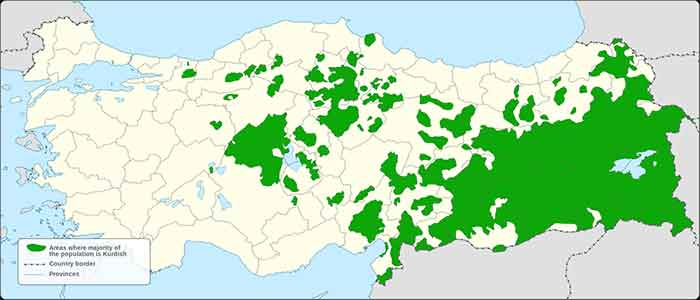Kosovo’s Kurti Feels the Heat Over Licence Plates Crisis
Since the licence plate crisis erupted, Kosovo’s Prime Minister has become sandwiched between criticism coming from all sides, both at home and abroad.
Since the licence plate crisis erupted, Kosovo’s Prime Minister has become sandwiched between criticism coming from all sides, both at home and abroad.
Zoran Milanovic’s offensive approach to neighbouring Bosnia and Herzegovina underscores the folly in the theory that EU membership would raise standards and encourage good neighbourly relations.

A recent blast hit the center of Istanbul resulting in several casualties. The Turkish authorities were very quick to announce the identity of the suicide person: A Kurdish woman in close relation with the Kurdistan Workers Party. Nevertheless, this terror act in Istanbul, followed by a new Turkish military intervention (aggression) in North Syria, once again opened the “Kurdish Question” which is in direct connection with the question of Kurdistan’s independence and terrorism as the political instrument in the realization of the national projects and ultimate goals.
Executive Summary
The constitution prohibits religious discrimination and provides for freedom of religion and religious expression. It grants equality before the law for all individuals regardless of religious belief. The Ministry of Justice (MOJ) and other government ministries discussed amendments to the 2007 law governing religion that would enable larger religious communities to acquire the status of “legal entities,” but the MOJ again postponed consultations with religious groups on the amendments. On February 18, the Islamic Religious Community in North Macedonia (IRC) publicly condemned the government’s official registration of the Islamic Salafi community in December 2020, saying it would be detrimental to Muslim unity. IRC leaders said relations with the government improved following a meeting in January between IRC leader Reis Shaqir Fetahu and President Stevo Pendarovski, but that some government ministries and the judiciary continued to treat the organization unfavorably. The Skopje Appellate Court upheld a lower court’s rejection of the registration application of the Orthodox Archbishopric of Ohrid (OAO) because the application had not been submitted by the deadline.
Şeful Statului Major al Greciei, generalul Konstantinos Floros, a întrecut măsura. Referindu-se la Turcia în discursul rostit cu ocazia Zilei Forţelor Armate, Floros a spus: “Vor decide când vor dori să vină”.
Bulgarian prosecutors have charged five people for supporting terrorist acts in connection with an explosion in central Istanbul that killed six people on Nov. 13, chief prosecutor Ivan Geshev said on Saturday.

Evidence obtained from a crackdown on the Sky ECC encrypted messaging app has shed more light on the support that crime gangs enjoy from public officials in Bosnia and Herzegovina.
The Prosecutor’s Office of Bosnia and Herzegovina has confirmed that evidence obtained from the crackdown of an encrypted messaging app will be valid in court, announcing the first indictments by the end of November for some of more than a 100 people arrested in the past year-and-a-half.

Concerns are growing over the government’s handling of a programme to move Ukrainian refugees from hotels to state-owned facilities, undermining their integration into Bulgarian society.
Since Russia’s invasion of Ukraine in late February, Bulgarians have been pressing their authorities to do more for the tens of thousands of refugees who have sought shelter in the Black Sea country. Now they face a new challenge.

If the political class doesn’t get to grips with the mass exodus of the young, and give them more opportunities, they risk ending up with no one to rule over.
Ivisited my maternal birthplace of Prusac near the central Bosnian town of Donji Vakuf twice last summer. Once a vibrant community, what was striking about it in August was its sheer emptiness. I encountered a few elderly people, but no youngsters.

After Azerbaijani President Ilham Aliyev visited Albania on Tuesday in the first-ever visit of its kind, Albanian President Bajram Begaj declared the welcoming of Azeri investments and the possible establishment of diplomatic missions.